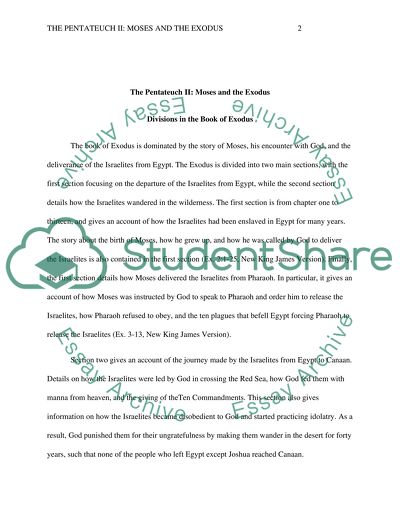Cite this document
(“The Pentateuch II: Moses and the Exodus Essay Example | Topics and Well Written Essays - 1500 words”, n.d.)
Retrieved from https://studentshare.org/religion-and-theology/1485473-the-pentateuch-ii-moses-and-the-exodus
Retrieved from https://studentshare.org/religion-and-theology/1485473-the-pentateuch-ii-moses-and-the-exodus
(The Pentateuch II: Moses and the Exodus Essay Example | Topics and Well Written Essays - 1500 Words)
https://studentshare.org/religion-and-theology/1485473-the-pentateuch-ii-moses-and-the-exodus.
https://studentshare.org/religion-and-theology/1485473-the-pentateuch-ii-moses-and-the-exodus.
“The Pentateuch II: Moses and the Exodus Essay Example | Topics and Well Written Essays - 1500 Words”, n.d. https://studentshare.org/religion-and-theology/1485473-the-pentateuch-ii-moses-and-the-exodus.


